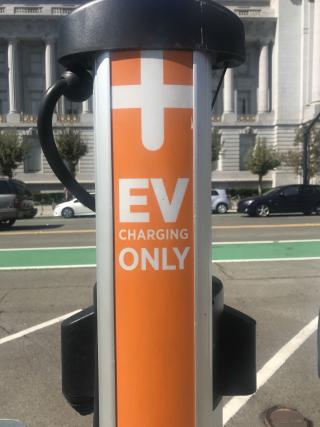 Amidst today’s action by the Trump Administration revoking the federal waiver that permits California to set its own strict air pollution controls, Assemblymember Phil Ting (D-San Francisco) called on California to step up its effort to further reduce greenhouse gas (GHG) emissions by proposing changes to how the state’s clean car rebates are given out. Ting’s measure, AB 40, represents a legislative effort that comes as the United Nations Climate Action Summit begins Monday, where world leaders are expected to bring concrete action plans to accelerate the progress they are making on addressing climate change.
Amidst today’s action by the Trump Administration revoking the federal waiver that permits California to set its own strict air pollution controls, Assemblymember Phil Ting (D-San Francisco) called on California to step up its effort to further reduce greenhouse gas (GHG) emissions by proposing changes to how the state’s clean car rebates are given out. Ting’s measure, AB 40, represents a legislative effort that comes as the United Nations Climate Action Summit begins Monday, where world leaders are expected to bring concrete action plans to accelerate the progress they are making on addressing climate change.
Under AB 40, only those automakers who have committed to increase the fuel efficiency of their gas-powered fleet - regardless of what the federal government does - would be eligible to participate in the state’s Clean Vehicle Rebate Project (CVRP). In other words, to qualify for a clean car rebate, the vehicle must be made by car companies that voluntarily agreed with Governor Newsom in July to buck any federal rollback of Obama-era tailpipe regulations in favor of California’s tougher standards. Higher fuel efficiency regulations are key to reducing emissions of carbon dioxide and other gases that contribute to global warming. So far, Ford, Honda, BMW and Volkswagen are on board, with more expected to join.
“California should not be incentivizing the purchase of vehicles manufactured by companies that don’t want to help us achieve our state’s public health and climate goals,” said Ting. “You’re either with us, or you’re not helping to save people’s lives and the planet.”
A recent California Air Resources Board report found the state has reduced GHG emissions overall, except in the transportation sector, which accounts for nearly 40% of the pollution. Then-Governor Jerry Brown issued an Executive Order last year, calling for five million zero emission vehicles (ZEVs) to hit the road by 2030. AB 40 adds the goal of ten million ZEVs by 2035. But, California still has a long way to go. As of August 6, 2019, there were only 626,000 clean cars estimated on its roads. AB 40 also limits rebates to ZEVs, making hybrids no longer eligible for CVRP, while requiring a higher rebate for longer range ZEVs. These changes would make CVRP more efficient in promoting California’s clean air goals.
Ting will continue work on AB 40 through the fall recess, as automakers consider joining the California agreement for more fuel efficient vehicles. The Legislature reconvenes in January, when the proposal would await a committee hearing.
# # # # #